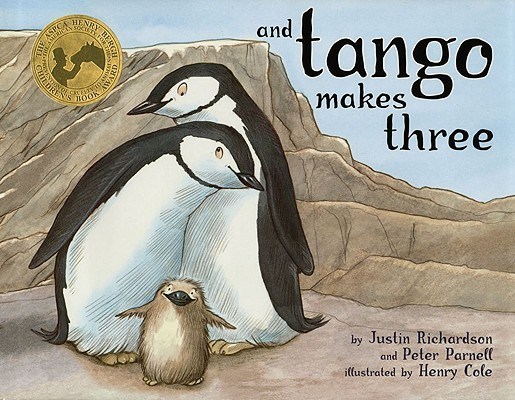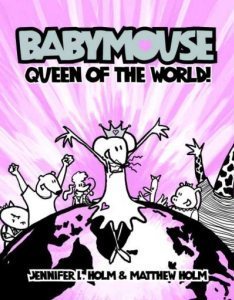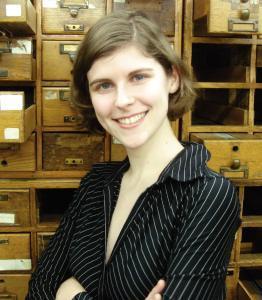Banned Books Month: Guest Post from Betsy Bird: Gatekeeping and Censorship for the Modern Metropolitan Children’s Librarian
Here’s the thing about New York City. Censorship? Not what I was expecting.
I got my library degree at The College of St. Catherine in St. Paul, MN. It was an excellent program and roundabout the time I figured out that it was children’s librarianship I wanted to go into (my propensity for accidentally destroying books did not exactly make me an ideal candidate for my first choice: conservator) my course was set. I took all the requisite classes. I learned all the important information. And as with any top notch children’s program, I was told about censorship.

Simon & Schuster Books for Young Readers, June 2005.
Library schools teach incipient librarians about censorship the same way I imagine troops were taught about VDs during WWII. There are charts. There are graphs. And there are in-depth talks on methods that will help you handle the situation. We learned preventative measures, like having a Collection Development Policy in place so that it could be whipped out at a moment’s notice. We learned about talking to the patrons, and really hearing their concerns. People who censor aren’t bad people. They just have worries, and sometimes they’re completely valid. That copy of THE GIRL WITH THE DRAGON TATTOO that accidentally got labeled JUV FIC? Thanks for telling me about it! For those patrons with true banning on their minds, you have a challenge form you can give them. They fill it out and then it gets reviewed and there’s a whole system in place to make them feel like they’ve been heard and respected. Even if/when their desires to remove AND TANGO MAKES THREE is ultimately rejected, they’ll feel like they weren’t ignored. And that’s a good thing.
So basically I was pumped. I was ready. I was gonna be prepared to take on the world. Minnesota, lovely place that it is, wasn’t exactly hiring any librarians when I graduated (the jobs are so delightful that children’s librarians in that part of the country hold onto them with both hands until they DIE!) so off to New York City I went.
I received my first children’s librarian position. My dreams were realized in full when they handed me a gorgeous room of my very own, to do with as I pleased. And with the eagerness of a unvarnished newbie I asked, “What kind of censorship issues have you faced here?” My new boss smiled in a confused fashion and came this close to patting me on the head. ”We don’t really have that problem in New York,” he said. Then he walked away.
Turns out that’s not strictly true. While NYC doesn’t face the same kind of challenges you might find in smaller cities, it does happen from time to time. The difference is that in NYC the attempts aren’t usually to ban. They’re to redefine. Someone thinks a middle grade book should be in the YA section or, at times, the adult. It happens. It’s taken seriously too.
And occasionally there are people who walk in off the street and demand that books be removed. Of course there are. My favorite story on this subject once came from a fellow children’s librarian working in a fairly upscale branch. A woman walked in and started systematically picking out titles. My friend didn’t think much of it until the woman had a huge stack in her arms. She then walked over to the reference desk and put them down.

Random House Books for Young Readers, December 2005.
“These books are about mice,” she said. My friend looked and confirmed that yes, indeed, that is what they were about. The stack included BABYMOUSE and THE MOUSE AND THE MOTORCYCLE and MOUSE PAINT amongst others.
“Mice are disgusting vermin. No child should ever learn that they’re cute.”
As my friend put it, she then stood there, arms crossed. ”As if she expected me to produce a can of kerosene and a match and light them on fire right there on the desk.”
It is critical to note, however, that while she made a bit of a fuss, the woman had no interest in lodging a formal complain. And therein lies the difference.
I worked the reference desks of NYPL for seven years and in that time I personally never got a single chance to use the knowledge I’d so carefully memorized and internalized in my library school days. Each time I’d hear a story about somebody like the anti-mouse woman or the folks on Staten Island that hated A.L.I.E.E.E.N. my heart would quicken and I’d wonder if I would be the next person to face an angry patron. I wasn’t. Meanwhile around the country I read about challenges, bannings, and acts of madness that I’d never personally face. As recently as September 10th the author Meg Medina was uninvited from a school appearance because of the title of her YA book: YAQUI DELGADO WANTS TO KICK YOUR ASS. One suspects that had the title been YAQUI DELGADO WANNTS TO RIP OUT YOUR FINGERNAILS or YAQUI DELGADO WANTS TO REMOVER YOUR SPINE WITH HIS TEETH, no one would have blinked so much as an eye.
What’s important for me is to remember that these things are happening all the time. They may not be happening to me. They may not be happening to anyone I know personally. But unless I keep my eyes open and pay attention, I could easily float about my days unaware that this is happening to anyone else. And THAT is the real danger here.
The skills I learned in library school have been completely wasted. I’ve never been so grateful for anything in my life.

Betsy Bird. (Photo by Sarah Hampton.)
Betsy Bird is a children’s librarian and popular blogger for School Library Journal. She has also served on the Newbery Medal committee and written for The Horn Book. This is her first book. She lives in New York City. You can visit her online at blog.schoollibraryjournal.com/afuse8production.








